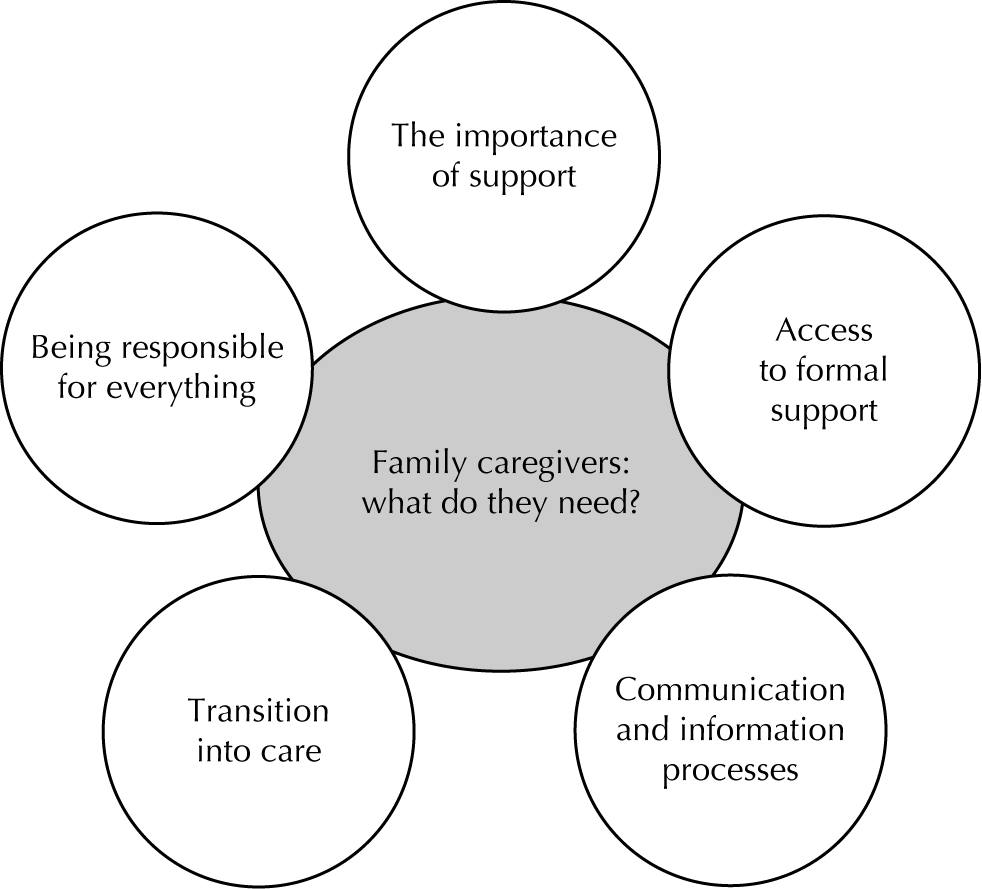The act of family caregiving often makes people sacrifice their own well-being to care for an aging parent or family member. As a caregiver, you may be thinking that it’s worth the sacrifices because of your love and commitment to those you are caring for. But is this really true? What about yourself? Would you like it if someone else lived in your home? Would you like to miss time with friends, family, work opportunities, hobbies, and more just so they can live comfortably?
Contents
- 1 What is Family Caregiving?
- 1.1 Types Of Family Caregiving
- 1.2 Importance Of Caregiving
- 1.3 Ways Of Family Caregiving
- 1.4 Positive Impact Of Family Caregiving
- 1.5 Negative Impact Of Family Caregiving
- 1.6 What Happens When I’m a Family Caregiver?
- 1.7 Role Of A Family Caregiver
- 1.8 Characteristics Of A Good Family Caregiver
- 1.9 Tips For Being A Good Family Caregiver
- 2 Conclusion
What is Family Caregiving?

Caregiving is typically defined as any activity that helps a person meet their daily needs, such as cooking and cleaning after someone else. Family caregiving is hard. You need to take care of someone. This can make you feel like your time, money, and emotions are all used up. It can be easy to get so involved in caregiving that you lose sight of what is important to yourself.
Types Of Family Caregiving
There are different types of family caregiving.
- The most common type is called hands-on caregiving. This is when you help people with their personal needs, like bathing or dressing.
- Another type of caregiving is emotional support caregiving. This is when you offer words of encouragement or simply listen to the person you are caring for.
- The last type of caregiving is called financial caregiving. This is when you help the person you are taking care of with their finances, like paying bills or handling their investments.
Would you like it if someone else lived in your home? Would you like to miss time with friends, family, work opportunities, hobbies, and more just so they can live comfortably?
Importance Of Caregiving

When it comes to caregiving for our loved ones, there is nothing more important than ensuring their health and wellbeing. Oftentimes, this means making sacrifices in our own lives to provide that support. While it can be difficult at times, family caregivers play a critical role in helping their loved ones live healthy and fulfilling lives.
There are many reasons why family caregiving is worth the sacrifice. For one, it allows us to stay connected with our loved ones and provides us with an opportunity to share special moments. It can also be incredibly rewarding to know that we are making a difference in someone’s life. Additionally, caregiving can help us develop new skills and strengthen relationships with other family members.
Ways Of Family Caregiving
- Hands-on caregiving: helping someone with their needs, like bathing or dressing
- Emotional support: offering words of encouragement and listening to the person you are caring for
- Financial Caregiving: helping them with finances, such as paying bills or handling investments.
Positive Impact Of Family Caregiving
- Family members who provide care have better health and physical functioning than those that don’t.
- When you give care to another it can help your self-esteem and mental health.
- You may feel more needed by the person you are caring for since they depend on you to meet their needs.

Negative Impact Of Family Caregiving
- Caring for a loved one can be stressful.
- You may feel like you are not doing enough or that you are constantly putting your needs on the back burner.
- It can be hard to find time for yourself and do things that make you happy.
- You may feel guilty about taking care of yourself.
- Family caregivers often sacrifice their own well-being to care for an aging parent or family member.
What Happens When I’m a Family Caregiver?
Family caregivers may sacrifice their time, energy, and emotions for the sake of someone they love. They also might miss out on opportunities at work or with family and friends as a result. For example:
- You may have to miss work or school in order to take care of a loved one.
- You might not be able to go out with friends because you need to stay home with the person you are caring for.
- Also, you may not be able to do things you enjoy because taking care of someone else takes up all your time.
It is important to remember that you are not alone in this. There are many resources available to help you, like respite care or support groups. You should also talk to your doctor about how to manage stress and find ways to take care of yourself.
When considering the pros and cons of family caregiving, it’s important to remember that the positives outweigh the negatives. Family caregivers often find personal satisfaction in knowing that they are making a difference in someone’s life. Caring for a loved one can also have positive impacts on your health and wellbeing. Remember to take care of yourself, too, and reach out for help when you need it.
Role Of A Family Caregiver
You can help an aging parent or family member with their needs.
It may be hard to find time for yourself and do things that make you happy. You might feel guilty about taking care of yourself, but it is important!
Family caregivers often sacrifice their own well-being in order to take care of someone they love. There are resources available like respite care or support groups if needed. There are also many benefits when considering the pros and cons of being a caregiver; the positives outweigh the negatives! It’s important to remember that you’re not alone in this situation either – reach out for help whenever you need it!
Characteristics Of A Good Family Caregiver

- A good family caregiver is able to take care of the needs of another person.
- Good caregivers are aware that taking care of themselves should be a priority, too!
- They also tend to have more self-confidence than bad ones.
- A good caregiver will know how and when it’s best for them to ask for help from others in their life as well.
- A good family caregiver is one who puts the person they are caring for first and their own needs second.
- They also tend to have high self-confidence as well as being aware of when it’s best to ask others in their life for help, too! They put the person they’re caring for first and themselves last.
- A bad family caregiver is someone who doesn’t take care of your needs. They don’t make sure you are healthy both physically and emotionally. This type of caregiver might feel bad about themselves because they do not put as much effort into taking care of other people.
Tips For Being A Good Family Caregiver
- You should always try to put the person you’re caring for first and yourself last.
- Taking care of your own physical and emotional needs is important, too!
- If you need help, ask your friends and family. They will want to help you because they love me.
- Reach out for resources like respite care or support groups when needed – there are plenty available that can provide relief or assistance.
- Be patient with yourself through this process; everyone has different ways of coping so remember not to compare how you handle things vs. other people! Everyone does what works best for them at their own pace.
- Every family is different, and every person’s needs are unique. Keep this in mind as you start to care for a loved one; these tips will help make the process easier!
- Take care of yourself. If you need help, ask someone else for it. They might want to spend time with you more.
- There are many resources available that can provide relief or just general support so take advantage of those when possible too. It is important not to compare yourself with other people. Everyone does things in their own way. You will do what works for you. That can be different from person to person or depending on the situation.
Remember: Each family dynamic is different and every person’s needs are unique. These tips will help make the transition into family caregiving a little bit easier, but always be prepared to adjust as needed!
Family caregiving is a huge responsibility that can be difficult to juggle, but it’s worth it in the end! By taking care of yourself and reaching out for resources when needed, you’ll be able to successfully provide care for your loved one. Don’t forget – every family is different so these tips won’t necessarily work for everyone, but they’re a good place to start! Good luck! 🙂
Conclusion
Caregiving for an aging family member can be a demanding and stressful task. You may not know where to start or you don’t know what tasks are the most pressing. This guide is designed to help you with some of those questions so that you can get started faster! In addition, we have compiled resources from other caregiving organizations in order to provide everything you need in one place. We hope that this resource will help take some of the stress out of caring for someone close to you who is getting older.
For more information, please contact MantraCare. Parenting is a challenging yet rewarding experience that is crucial for the development and well-being of a child. If you have any queries regarding Online Parenting Counseling experienced therapists at MantraCare can help: Book a trial therapy session



